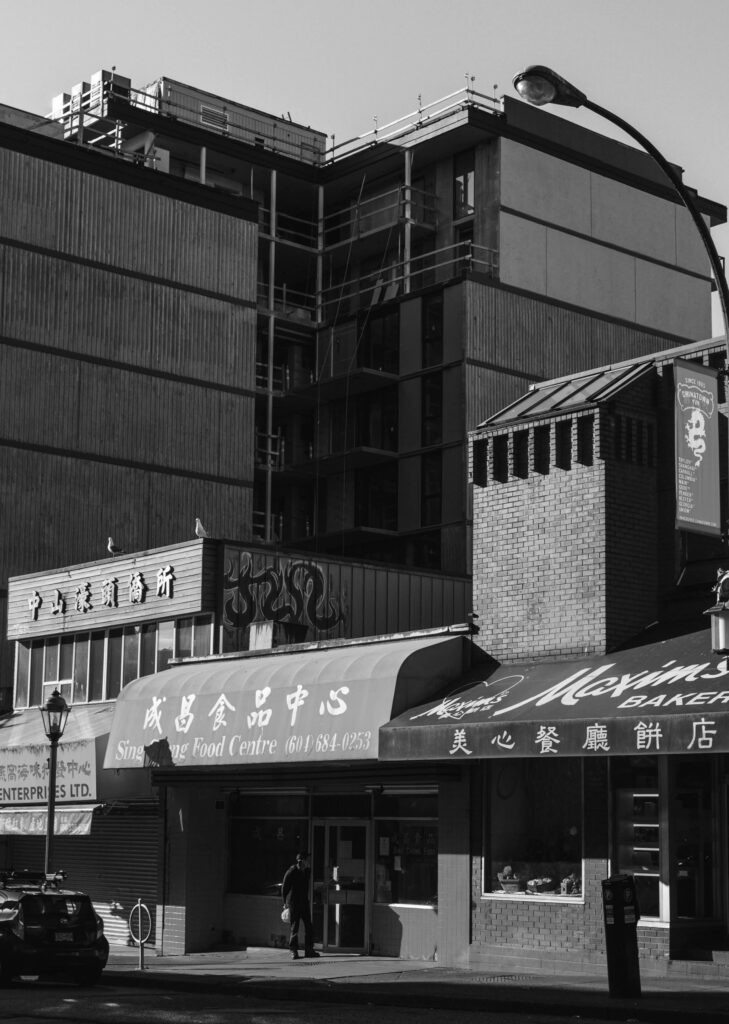Lindsay Wong is best known for her 2018 memoir, The Woo-Woo, which exposed the secrets and mental health struggles of her conservative Chinese Canadian family. Although the book won critical and popular acclaim — it was a finalist for the Hilary Weston Writers’ Trust Prize for Nonfiction and a Canada Reads contender — it was met with silence by Wong’s family. Did this fraught hush lead her away from memoir? Is this why she turned to fiction with Tell Me Pleasant Things about Immortality, a volume of short stories that draws on family lore but is explicitly not autobiographical?
Dedicated to Wong’s ancestors, “who faced terrible and portentous horrors” in China, this collection offers a chilling blend of the mythological and the supernatural. Taken together, the stories evoke a macabre, surreal netherworld governed by terror and haunted by ghosts, demons, and zombies. Set variously in China and North America, in the past and the present, they suggest the menacing continuum of corruption and oppression that dictates the lives of Wong’s characters, many of whom remain rooted in traditional customs and superstitions, even as they rail against a repressive culture. Mothers and daughters alike are victims of an autocratic regime that has diminished and devalued women for generations; they are alienated from one another, more often foes than allies.
“The Ugliest Girls,” one of the book’s more shocking stories, imagines the lives of children who are born hideous and “misshapen.” For the total sum of “three months’ wages,” the first-person narrator, known as Chicken-Face, is sold off by her parents — her mother’s parting words are “Keep your face covered” and “May your daughters be more fortunate-looking than you”— and shipped from her village of Beiji to Gold Mountain. There, she is literally drained of her “bad memories” by “blood-red” leeches, which are then cooked and transformed into sweet confections for the rich, who “pay handsomely to experience our divine suffering.”
In “The Basket-Swimmers,” a mother is known as the best swimmer in Houtouwan; she is “half mermaid, half fish and amphibian.” Every day, she carries guava, starfish, and oysters in a woven basket held on her head as she swims to the village market. Her daughter, in contrast, is fully human and afraid of the water. “You’ve brought your curse to our village,” the mother reproaches her daughter. “How can you be mine?”

From the surreal netherworld to Vancouver.
Alex Suno
A mother and daughter unite for malignant purposes in “Kind Face, Cruel Heart.” When they rise from the dead as two howling “red-eyed demons,” it is to torment a son and brother, Junjie. At one time, all three were prisoners in Death Valley, where they were forced to collect iridescent mushrooms in “underground fungi caves.” Later, as “malevolent beasts” that are “horned, clawed, and fanged” and driven by vengeful loathing, mother and daughter bring about Junjie’s demise.
In the title story, the narrator, “the oldest living woman in the world,” is in service to the Communist government. Most people die after eating the night-blooming death lily, but she has achieved immortality by consuming just the right amount of the flower. Over time, her body has so atrophied that it has to be restored by a specialty crew. “What’s left” resembles a wax replica of her former self. Now age 376, the woman has become an international tourist attraction, an “exhibit at the National Museum of China.” There she dwells immobilized and arranged in a “tortuous position,” while consciously “suffering for choosing self-preservation instead of family.”
Misfortune carries over from China to North America, where characters travel to elude pursuing spectres. In “Sinking Houses,” a daughter, who was abandoned at the age of eleven by an unstable and irrational mother, becomes an “internet-order bride” and flees Shanghai for Nebraska City, Nebraska. Despite mixed feelings toward her “runaway mother,” she hopes to find her in the United States. Instead, the daughter finds herself alone in the middle of an apocalypse.
An East Vancouver mother in “Wreck Beach” searches weekly for a new mate. Each “Find-Daddy Night,” she forces her daughter to feign illness so she can connect with Dr. Yu, who works in the emergency department of Vancouver General Hospital. When the physician turns down the woman’s marriage proposal, she is escorted away for a psychological evaluation; her child is left with a heart that “was damaged, but not removed.”
A materialistic social climber in “Happy Birthday!” lures her daughter with a promise of $5,000 if she agrees to fly home from New York to celebrate her father’s sixty-fifth birthday. For Amy, who is considered “obese by Hong Kong standards,” the family gathering is an ordeal that she gets through by shovelling in “seconds and thirds” of her mother’s mango pudding.
If there is a glaring lack of support among mothers and daughters, grandmothers do step in to lend a hand. In “The Noodley Delight,” Grandmama Wu, who owns “the third-best noodle shop in the Asian food court in Crystal Mall, Burnaby,” looks out for her grandchildren. At one point, the vulgar “old harpy” fends off a bully by pulling him “into a furious headlock.” She also asserts the importance of kinship by urging the narrator, Kyle, who wants to be a girl but hides that feeling, to “take care of your brother.” As the old woman is about to disappear into the afterlife, the narrator admits that the loss feels “a bit gutting.”
Grandmama Wu is the rare ally in this collection, and even she is unreliable in that role. That girls and women must count on themselves, that they must strive for independence at all costs, is made especially clear in the final story, “A Bloodletting of Trees.” Two sisters, Meifan and Yuchen, whose feet have been freshly bound in “lotus shoes the colour of fledgling suns,” are child concubines who have endured “years of misery and servitude.” After the death of their husband, they are brought to the “funeral forest” to be killed. To escape, Yuchen must leave Meifan, who has lost the will to live, and crawl “ghost-like but determined, more tortoise than girl.” The pregnant twelve-year-old resolves to move slowly toward an uncharted future and, in so doing, leaves behind “certain death.”
Such fortitude, will, and tenacity are necessary if women are to quit the dark and dangerous world as envisaged by Wong. Without these traits, they will succumb to the demons and suffer in silence.
Ruth Panofsky teaches English literature at Toronto Metropolitan University. She recently received the Royal Society of Canada’s Lorne Pierce Medal.

